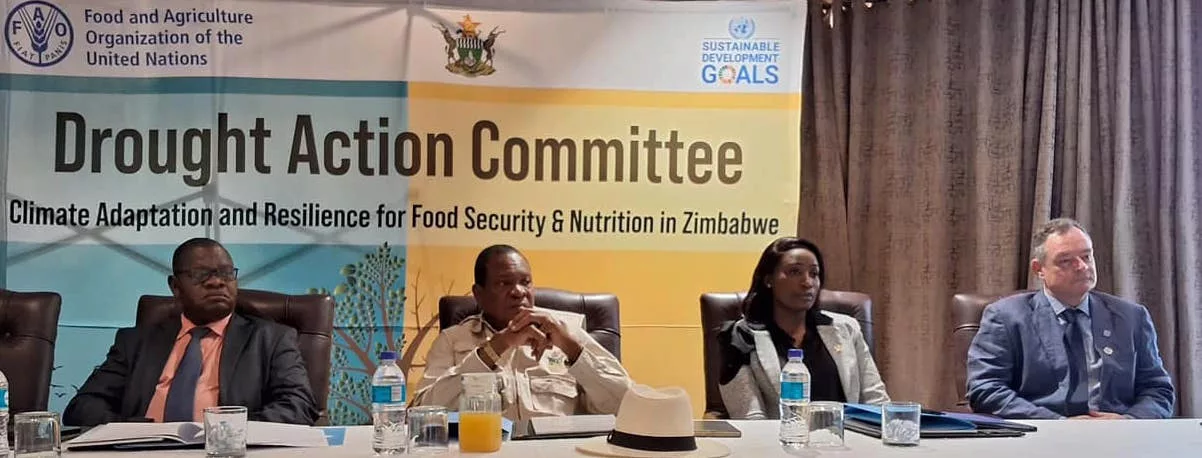|
Getting your Trinity Audio player ready...
|
In a significant gathering at the Rainbow Towers in Harare yesterday, the Minister of Lands, Agriculture, Fisheries, Water and Rural Development for Zimbabwe, Dr. Anxious Jongwe Masuka, delivered a powerful address at the Zimbabwe Agriculture Resilience Symposium and Drought Action Committee (DAC) feedback report meeting.
The event brought together key stakeholders, including government officials, representatives from the Food and Agriculture Organisation (FAO), private sector partners, and development agencies, all committed to revitalizing Zimbabwe’s agricultural sector in the face of the ongoing climate challenges.
Dr. Masuka’s remarks were poignant, especially following the devastating impacts of the El Niño-induced drought that prompted President Mnangagwa to declare a National State of Disaster on April 3, 2024. The declaration indicated an urgent need for an estimated USD 2 billion for immediate mitigation efforts, alongside USD 717 million dedicated to building resilience within the agricultural sector.
The minister emphasised the critical need for Zimbabwe to emerge stronger from this drought crisis, highlighting the government’s proactive response through the establishment of the Drought Mitigation and Resilience Plan. This plan aims to support affected farmers through the creation of 1,620 Ward Drought Mitigation Centres, one in each rural ward, equipped with essential resources such as water supply and feed.
“The recent droughts have significantly affected our crop yields and livestock production, with dire consequences for food security and community well-being,” Dr. Masuka stated. He underscored the need for immediate, medium, and long-term strategies to address these challenges, facilitated by the eight sub-committees formed through a collaborative effort between government and private sector stakeholders.
The DAC report, presented during the symposium, outlined the urgent necessity for adaptive strategies and innovative agriculture practices. Dr. Masuka advocated for enhanced public-private sector partnerships, stating, “Stronger collaborations can lead to increased investment in agricultural infrastructure and technology.” He stressed the importance of research and development initiatives that cater to the needs of farmers, particularly those affected by climate-induced hardships.
As the symposium concluded, there was a collective recognition of the journey towards resilience requiring collaboration and shared responsibility. Dr. Masuka called on all stakeholders to unite in their mission to secure a sustainable future for Zimbabwe’s agricultural landscape.
“Let us take bold steps forward, united in our mission to secure a sustainable and prosperous future for our farmers and our nation,” he urged, leaving participants with a renewed sense of purpose in addressing the challenges posed by drought and climate change.
In his complimentary remarks, the Permanent Secretary Prof Dr. Obert Jiri highlighted the emergency to save cattle .”In three months 691 cattle have been lost not including those that died last month,” Prof Jiri stated.
Engineer Tinayeshe Mutazu from the Water Resources and sanitation said that they are targeting the risky areas and that there is an emergency water supply that is going to supply those areas in need.
As Zimbabwe navigates these turbulent times, the discussions will play a vital role in shaping policies and initiatives aimed at safeguarding food security and ensuring the resilience of the agricultural sector for generations to come.






